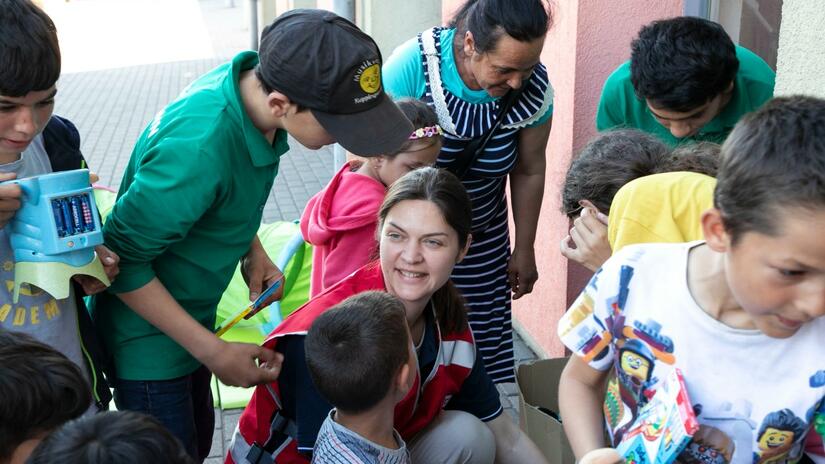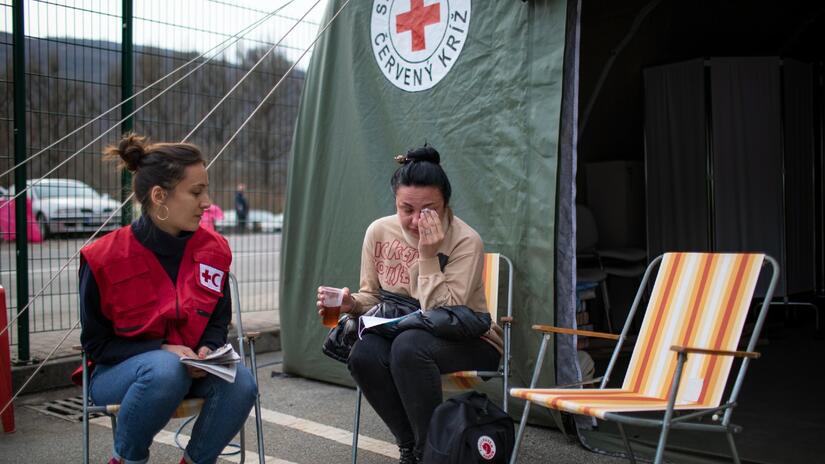According to the WHO, one in five people are affected by mental health disorders in post-conflict settings. If left without treatment and adequate support, people from Ukraine face long-lasting effects that could harm themselves, their families and communities.
“Wounds of war are deep, sometimes too deep to manage alone,” says Nataliia Korniienko, Mental Health and Psychosocial Support delegate with the International Federation of Red Cross and Red Crescent Societies (IFRC).
As a Ukrainian herself who had to leave the country when the escalation began, she understands firsthand the stress faced by those fleeing conflict. “People are craving for someone to take the time to sit alongside them in their pain, but this often lacking for many fleeing Ukraine right now.”
In a regional initiative to meet this massive need, National Red Cross Societies in Ukraine and 24 EU/EAA countries have joined forces to offer mental health and psychosocial support services to hundreds of thousands of people from Ukraine. Funded by the European Union, and with technical assistance from the IFRC and the IFRC Psychosocial Centre, the project connects vulnerable people with mental health professionals and volunteers from the National Societies.
Support is offered in Ukrainian and other languages through various platforms, including helplines, mobile outreach and in-person group activities. Materials on psychosocial support in several languages are also going to be distributed among mental health professionals and the public.

Nataliia, a Ukrainian mental health and psychosocial support delegate with the IFRC, helps children fleeing conflict in Ukraine to collect toys and other supplies at an assistance point across the border in Hungary.
Photo: IFRC/Nora Peter
Since the first days of the conflict, Red Cross Red Crescent staff and volunteers have been assisting people at border crossing points, train stations and temporary shelters – listening and demonstrating empathy, sharing life-saving information, and taking care of vulnerable people.
Aneta Trgachevska, acting Head of Health and Care at IFRC Europe, said: “We try to reach everyone in need in a convenient, personalized way. Assistance will not be limited to just a couple of calls or meetings—a person will receive support as long as we are needed. This kind of early response can alleviate symptoms and prevent people from developing serious levels of distress or even mental health conditions.”
--
The content of this article is the sole responsibility of IFRC and does not necessarily reflect the views of the European Union.





